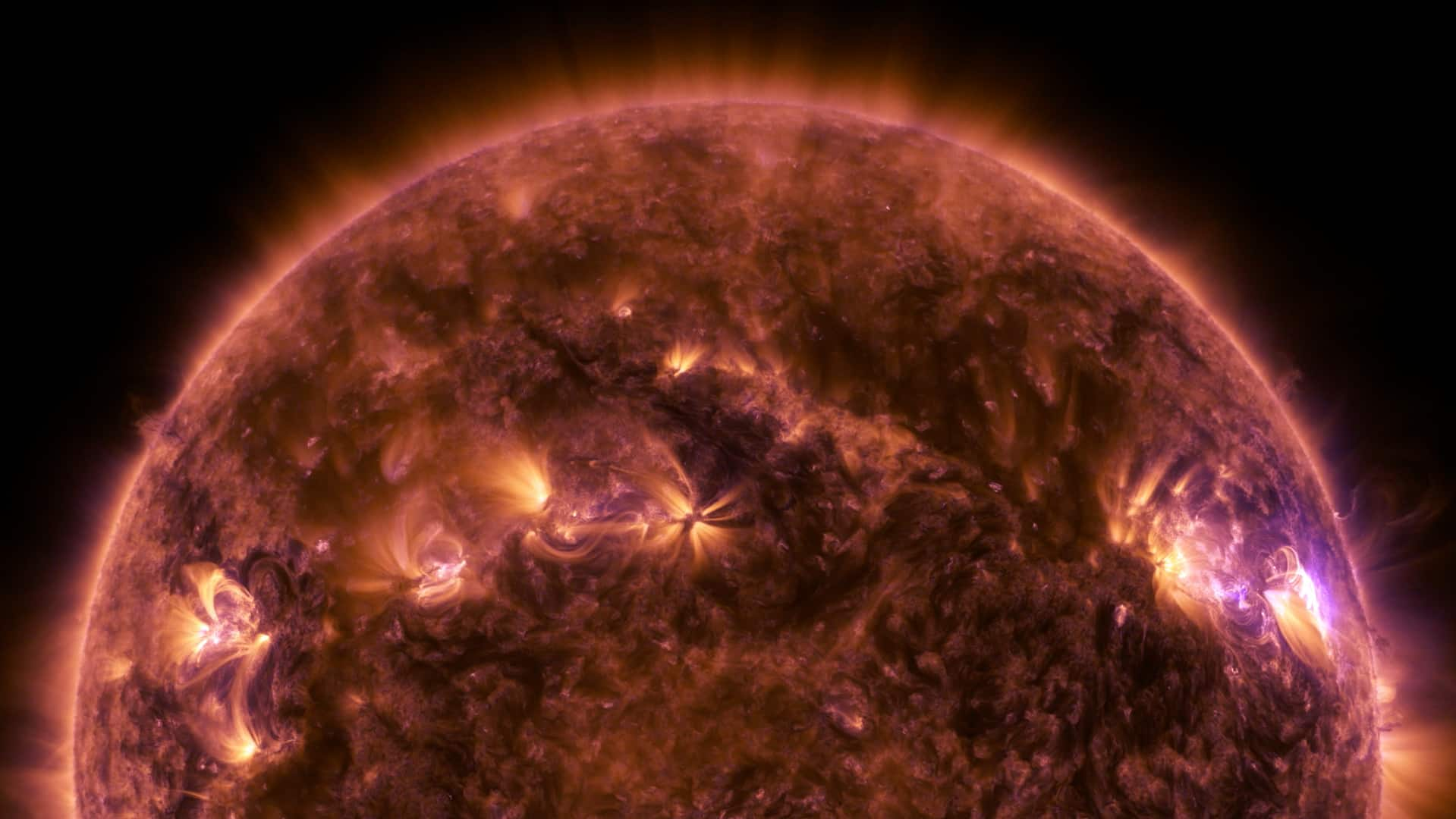Christmas lights might not be the only thing lighting up these dark December nights, as a solar storm is expected to bring bright northern lights to the Prairies this weekend.
Aurora borealis is considered among the greatest natural wonders and scientists say it starts with the sun.
“The sun is sort of spewing off protons and electrons as a plasma in all directions, all the time, we call that the solar wind,” said Bill Archer, mission manager at the Canadian Space Agency.
“The magnetic field of the Earth actually forces the solar wind to deflect around the Earth … so it doesn’t run right into the Earth.”
He says Earth’s magnetic field acts like an elastic band.
“If you stretch it far enough and it snaps back … that shoots electrons and protons down … into our atmosphere until it hits air that’s thick enough that it will collide with it,” said Archer.
“When those particles collide with our atmosphere, it lights it up like an old CRT [cathode-ray tube] television or perhaps a neon light.”
Featured VideoThis solar cycle could be the strongest this millennium, according to experts. So we look into what that will mean for us on earth and how it will affect our climate.
This weekend’s aurora will be the result of a geomagnetic storm on the surface of the sun that happened earlier this week.
Despite knowing the source, it’s hard to determine when those particles will collide with Earth’s magnetic field, lighting up the night sky.
Frank Florian, senior manager of planetarium and space sciences at Telus World of Science, said right now the prediction is that the stream of material will arrive early Friday morning, but he cautions “this isn’t a really precise science.”
Florian says auroras might become more common and brighter this winter.
“In an 11-year cycle, the sun actually undulates, it has very active times and very sort of quiet times, and right now we’re coming up to this really active time of the sun,” said Florian.
“Sometimes these shows can be seen even from urban locations with light because they are so bright and dynamic that you can see them with all the bright city lights.”
Florian said the best way to increase your chances of seeing an aurora is from outside the city.
Green, red and purple
Auroras appear in the sky as a melding of many colours, with some appearing more vividly because of particular gases in the atmosphere.
“Green is from … an oxygen line that we see, so effectively you’ve got the oxygen atoms there and electrons come down from deep in our magnetosphere, it excites the oxygen and then when it drops back down it gives off green light,” said Archer.
He says oxygen also prompts shades of red to appear in aurora, but it’s often too dim to spot.
“Then there’s purple that you’ll see in a really brilliant display that’s right along the bottom edge of aurora … those are nitrogen lines,” said Archer.
“What the human eye, or maybe cameras, pick up will be some interesting mixture of those [colours] and the background light.”
Track auroras online
The University of Alberta has a magnetometer that monitors Earth’s magnetic field, providing updates on the website Aurora Watch.
“Those magnetometers start to swing wildly when the Earth’s magnetic field buckles, when these particles actually hit them, and that gives us a little bit of warning … [to] get outside and look up,” said Florian.
“Unfortunately, when these red alerts happen … it’s usually when it’s just started, so you don’t have much time to get out of your pyjamas, run outside, look up and see this projected thing.”
With the current aurora forecast, citizen scientists and amateur astronomers in the Edmonton chapter of the Royal Astronomical Society of Canada will be keeping their eyes on the skies this weekend.
“We have everything from professional researchers and academics, to the typical citizens that you know have an interest in looking at aurora or … using a telescope,” said president Jay Lavender, who encourages anyone interested in astronomy to contact his group.

